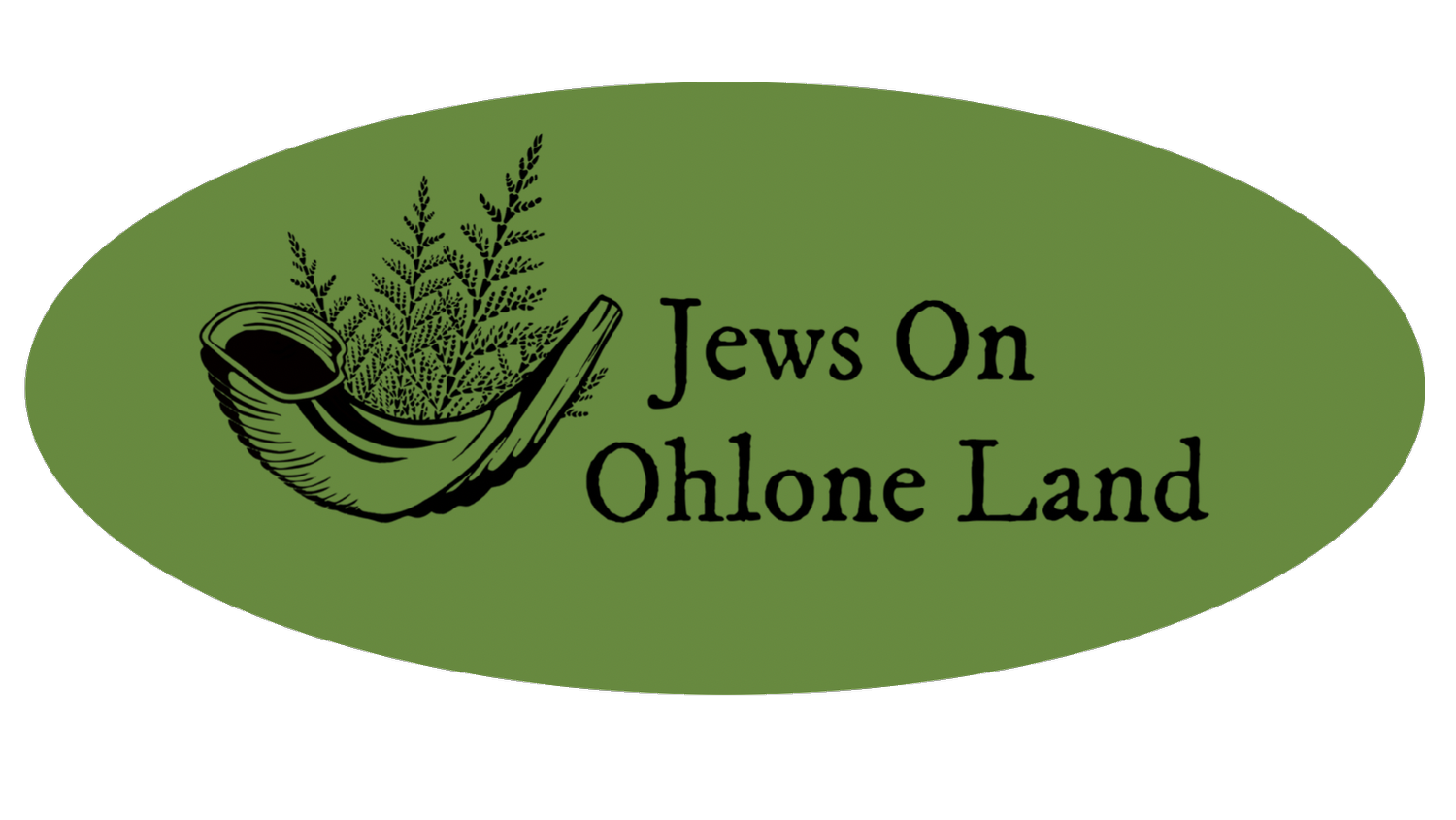Shofars for Shuumi
by JOOL Co-Founder Ariel Luckey
Given its spiritual and physical force, it’s no surprise that we often call the sound a shofar makes a blast. An ancient instrument typically carved from a ram’s horn, Jews have been blowing shofars for centuries announcing to the community: Come! Wake your mind, body and spirit! We have much to do. Come rejoice! Mourn! Fight! Pray! Whatever the occasion, it's a call to action. A morning alarm clock. A sacred siren. Breaking through our regular activities with purpose and kavanah (intention).
During the coming month of Elul, many Jews blow the shofar daily in preparation for the High Holy Days, to sharpen our focus and awaken to the heightened practice of teshuvah (relational repair). Two years ago, Jews On Ohlone Land (JOOL) launched our #Shofars4Shuumi campaign during Elul, because this is a particularly potent time to practice teshuvah by paying Shuumi.
Originally inspired by the Honor Tax for the Wiyot Tribe, the Shuumi Land Tax is an invitation for non-Indigenous people who live on Lisjan Ohlone land to make an annual contribution to support the rematriation work of Sogorea Te’ Land Trust, an urban Indigenous women-led land trust based here in the East Bay. Organizing our Jewish communities to pay Shuumi, both as individuals and organizations, has been a central goal of JOOL’s since our inception. Shuumi means “gift” in Chochenyo, the language that Lisjan people have spoken here for thousands of years.
At first, you might think of the gift as only a financial one given to Sogorea Te’. But as someone who is not Lisjan or Indigenous to this continent, who is slowly unpacking how much my life here has been shaped by and built on genocide and the theft of this land, I’ve come to understand that the gift is also for me. The opportunity to learn the Indigenous history of the land that I live on, to support the leadership of Indigenous women as they rematriate the land, to begin, in this small, insufficient way, to make amends, to practice teshuvah, that is a true gift. One that I am profoundly grateful for.
Shuumi is not just about a financial contribution. It’s about building a relationship with the Lisjan people, showing up for the Indigenous led movements for #landback and rematriation, and actively recognizing and supporting Indigenous sovereignty. As Corrina Gould, Co-Director of Sogorea Te’ and Spokesperson for the Confederated Villages of Lisjan, says, Shuumi is “a way of beginning a conversation with your family and yourself: what does it mean to live on occupied territory and how can I live here with integrity? How do I be a good guest?”
How can we, as Jews, be good guests on this land? What practices of teshuvah will help us turn toward right relationship?
No amount of money will undo the impacts of generations of colonization. But Shuumi is a step in a long-term process of healing, a direct and important way that we can, right now, support rematriation. Shuumi invites us all to do the work our ancestors and future generations are calling us to do: to think about what we can offer, find out what is useful, and make it happen. Can you hear the shofar call? We have much to do.
JOOL Note: A drash is a teaching about the Torah that usually takes place in a synagogue. We are remixing that practice. In this digital space, JOOL members teach about the Torah of Jewish/Indigenous solidarity work. Individuals offer their perspectives on the questions and ideas that are moving through them. We hope it's a wild and sacred space. By lifting up different points of view, we practice our values of transparency, learning and relationship building. And we celebrate the diversity of our collective, where many different voices are joining together, connected through shared values, to call for Indigenous sovereignty.
